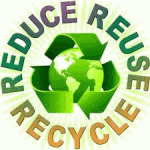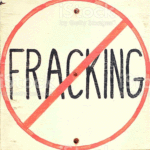
 Reducing SUPs (Single Use Plastics) is a laudable goal. Although some SUPs are necessary (for example medical use), reducing & recycling plastics are only partial and temporary solutions. Therefore, the classic environmental mantra – Reduce/Reuse/Recycle needs a “P” for PREVENTION. I have divided Prevention into two sub-categories – Substitutions and Stop the Production. To explore these strategies in more depth I consulted several scientists and advocacy groups.
Reducing SUPs (Single Use Plastics) is a laudable goal. Although some SUPs are necessary (for example medical use), reducing & recycling plastics are only partial and temporary solutions. Therefore, the classic environmental mantra – Reduce/Reuse/Recycle needs a “P” for PREVENTION. I have divided Prevention into two sub-categories – Substitutions and Stop the Production. To explore these strategies in more depth I consulted several scientists and advocacy groups.
1. SUBSTITUTION requires finding alternate sources for packaging.
Dr. Love-Ese Chile is a sustainable plastic researcher based in Vancouver, British Columbia. She talks about the Circular Economy in which bio-based substances like food or agricultural waste (for example corn husks, banana leaves, seaweed, fungi) can be converted into substitutes for petrochemical plastics.
Similarly, Dr. Patricia Demarco a biologist working in Pittsburgh, PA talks about Green Chemistry which develops bio-plastics from plants (algae, enzymes, hemp, bamboo) instead of petrochemicals derived from oil. In addition, cardboard or reusable bags can be substituted for plastic packaging. She also works with biomimicry & catalysts that have medical uses.
The bottom line is that many scientists have done research in developing alternatives to SUPs. Implementing these solutions would reduce plastics in the environment by 40%. The challenge is producing these products on a scale that is economically profitable. Can our society wait? How do you make consumer choices? For an extensive list of substitute products for household use, see Plastic-Free Living Product Guide.
I recently bought several Etee products (dishwashing soap, scrubbies, shampoo, and stain remover) to see if they worked – so you don’t have to 😊. Yes, all worked…BUT there is a –
Dilemma: Although the products worked well enough, they have to be mail ordered and cost more. This takes us back to economy of scale. Are you willing to pay more to support the companies that make plastic free items until they can be mass produced on a scale that would make them economically competitive? Are you willing to be part of the solution?
 2. STOP THE PRODUCTION is more of a political approach.
2. STOP THE PRODUCTION is more of a political approach.
It involves stopping the petrochemical industry from fracking (injecting liquid at high pressure into subterranean rocks to extract oil or gas). Preventing the production of plastics at its source not only reduces plastics but also the air, water, and ground pollution that come from the process. The challenge here is that the petrochemical industry is losing energy sales to renewable sources like solar and wind, thus producing plastics becomes a new revenue stream. Since regional governments are usually the vehicle for regulating land use, this is where ordinary citizens need to band together to lobby government officials to protect the air, land, and water from pollution.
For the committed: To learn how you can make a significant impact in preventing plastic production at its source, join Halt The Harm Network which connects activists in the fight against oil and gas. Check out their Webinar – Impacts of Plastic Virtual Summit, A-Z Plastics.
Is this Living Lightly? No, it can be a very complicated and time-consuming process to join with other concerned citizens, contact elected officials, and become involved in the political process. Indeed, it does take a village to protect a community of villages. Each of us must discern what is mine to do. Some may find that responsible recycling is all they can manage at this time. Others can creatively adjust their lifestyle to reduce Single Use Plastics. But some of us have to do the hard work of political advocacy to protect the sacredness of human life and all creation.
Since I live along the Ohio River which is a region that is currently a target for the petrochemical industry building plants for fracking and distribution, I have been educating myself about how to join with others who are working on the “Stop the Production” end. What is yours to do?